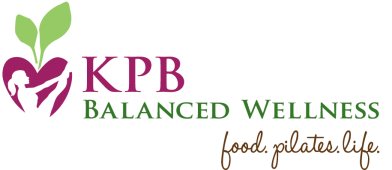I was stunned. I had just received my results from my latest physical and I had asked to have my cholesterol checked, just to get a baseline. I was eating a heart-healthy diet: oatmeal every morning, maybe eggs once a week – mostly whites, zero butter, zero red meats and lots of whole grains. So when I heard my doctor say I had an elevated cholesterol level and I should really consider eating Promise spread to help lower it, I was shocked.
What was I doing wrong?
Before diving into why I had high cholesterol, let’s first understand what cholesterol does in the body:
Cholesterol as Band-Aid
Cholesterol is a critical component in tissue repair. Cholesterol and collagen combine forces to heal and repair any tissue in the body. If you get a cut on your skin, collagen and cholesterol will come in and lay down much like a band-aid to support healing and ultimately create a scar. The same happens in your arteries. If the walls of the artery are damaged in any way cholesterol and collagen are the repair crew.
Cholesterol as Security
Cholesterol is so integral to your body, that it actually is used in every single cell in the body. Every. Single. Cell. One of its main roles is to create the cell wall structure along with some mono-unsaturated fatty acids (think avocadoes). Cholesterol and Monounsaturated fat then team up much like the Men In Black to keep the bad guys (pathogens, toxins, cancer) from infiltrating your cells and to keep nutrients and minerals, in.
Cholesterol as your Hard Drive
Did you know babies absorb cholesterol at a rate of nearly 100% from breastmilk in their early months of life? Why is that? What has to grow the most, first? The brain. Mother’s milk actually provides a specific enzyme to ensure baby absorbs the cholesterol at high rates. Never again in your life will you absorb cholesterol at near 100%.
The brain takes up about 25% of the total cholesterol in the body as it is vital to every cell and structure in the brain. Cholesterol is used to create the myelin sheath around each nerve cell and fiber. Without cholesterol, you can’t communicate appropriately from one nerve cell to the other. Worse yet, those with deteriorating myelin are at risk for Multiple Sclerosis. Secondly, cholesterol is the key nutrient that allows you to form synapses. Synpases are how your brain cells communicate with one another and store memory. Without cholesterol we aren’t able to learn or remember anything. A major side-effect of statins is memory loss.
Cholesterol as Hormone Factory
I have yet to meet a woman in her twenties to forties who doesn’t struggle with hormone imbalances (unless she has actively worked to fix it already). Yes, there are many components at play here, but what time period did we all grow up in? Cholesterol is the evil of all evils! Cholesterol is a critical component of every single steroid hormone: testosterone, progesterone, estrone, estradiol, pregnenolone, corticosterone, aldosterone, etc.
Steroid hormones regulate metabolism, energy production, mineral assimilation, behavior, emotions and reproduction. Without adequate levels of cholesterol we can’t produce enough hormones to handle stress through the adrenal glands, nor can we produce enough hormones to carry a baby. The most critical time period for developing healthy hormone levels is in puberty, precisely when most young women are desperately trying to diet and lose weight.
Cholesterol as Immune Support
When your body is fighting an infection, the immune cells rely on cholesterol to repair themselves after the fight. LDL cholesterol (the ‘bad’ cholesterol) also has a critical role, it binds and inactivates bacterial toxins and stops them from causing you harm. Staphylococcus aureus, or MRSA, does not work in the presence of LDL cholesterol. Those with low levels of cholesterol are prone to more infections and suffer from them longer. Eating a diet rich in cholesterol supports your ability to recover from infection more quickly.
Why Did I Have Elevated Cholesterol Levels?
Elevated cholesterol levels do tell us there is an imbalance in the body and it isn’t necessarily something to ignore. However, blaming cholesterol for showing up is not much different than blaming the ambulance for showing up after an injury. Cholesterol is part of the first line of defense in any type of healing in the body.
The better question is, why is there an injury?
For me, all of the oatmeal, whole grains and wheat with very little fat or protein meant that my body was in one heck of a blood sugar roller coaster. Not to mention, I’m sensitive to wheat and that was doing some significant damage in my body. When my body had repair work to do, cholesterol was critical to the healing process and my body made the cholesterol, regardless of the fact I wasn’t eating any. Removing the inflammatory foods and stabilizing my blood sugar meant I was no longer causing inflammation and damage to my tissues and therefore I no longer needed large quantities of cholesterol to do the constant, large-scale repair work.
And now, I eat the yolks.
References:
Campbell-McBride, N. (2010). Put Your Heart in Your Mouth. Cambridge: Medinform Publishing.
Rheaume-Bleue, K. (2012). Vitamin K2 and the Calcium Paradox. Toronto, Canada: Harper Collins.



I had no idea cholesterol was a healer! Thank you for another enlightening post, Kristi.
Crazy isn’t it? I am glad you enjoyed the post, Jeanette!